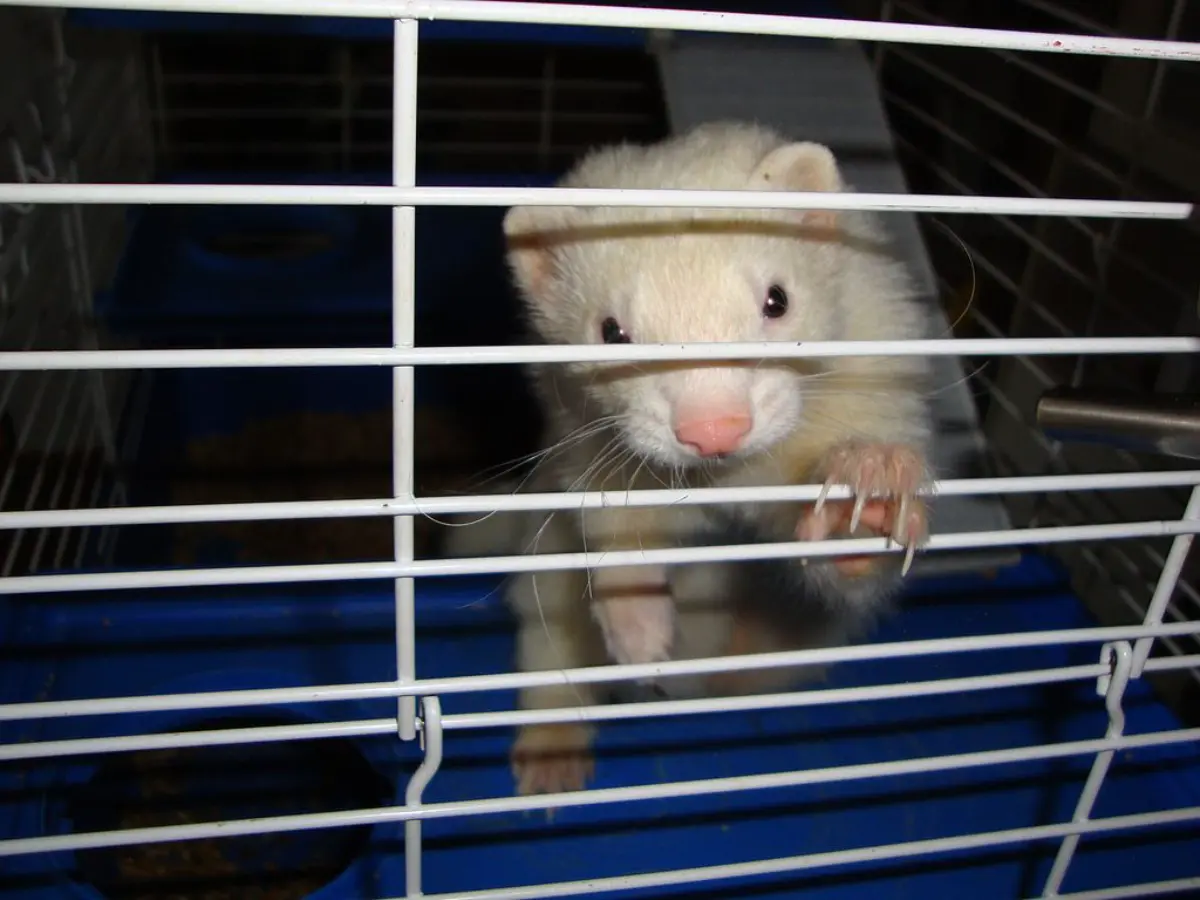Ferrets can also be quite messy, and maintaining a clean living environment for them is essential to their health and happiness. Cleaning a ferret’s cage regularly will help prevent odor, ensure your ferret stays healthy, and make their home a comfortable place to live. Here is a comprehensive guide on cleaning a ferret’s cage.
Supplies Needed
- Rubber gloves
- Mild dish soap or pet-safe cage cleaner
- Warm water
- Paper towels or a clean cloth
- Trash bags
- Vinegar (optional)
- Vacuum cleaner or broom
- Fresh bedding and litter
Step-by-Step Guide
1. Prepare the cleaning area
Choose a well-ventilated area for cleaning the cage, preferably outdoors or in a room with open windows. This will help to minimize the inhalation of dust, debris, and cleaning fumes.
2. Remove your ferret from the cage
Before you begin cleaning, ensure that your ferret is safely secured in a separate playpen or another temporary enclosure. This will keep them from coming into contact with cleaning supplies and prevent them from escaping.
3. Remove all items from the cage
Take out all toys, food dishes, water bottles, hideaways, hammocks, and other accessories from the cage. You will need to clean these items separately.
4. Dispose of old bedding and litter
Wearing rubber gloves, remove all used bedding and litter from the cage, and dispose of it in a trash bag. Be sure to check for any hidden waste or debris in corners and crevices.
5. Clean the cage
Using a mild dish soap or pet-safe cage cleaner, mix a cleaning solution with warm water. Scrub the cage thoroughly, paying special attention to corners, bars, and any spots with visible dirt or waste. For stubborn stains or odors, you can use a 50/50 solution of water and vinegar.
6. Rinse and dry the cage
After scrubbing the cage, rinse it thoroughly with clean water to remove any soap residue. Use paper towels or a clean cloth to dry the cage completely, as any remaining moisture can lead to mold and mildew growth.
7. Clean cage accessories
Wash all toys, food dishes, water bottles, hideaways, and other accessories with the same cleaning solution used for the cage. Rinse and dry them completely before returning them to the cage.

8. Replace bedding and litter
Add fresh bedding to the cage, ensuring that it is evenly distributed and covers the entire cage floor. Fill the litter box with fresh litter and place it in the designated area of the cage.
9. Clean the surrounding area
Use a vacuum cleaner or broom to clean the area around the cage, picking up any stray bedding, litter, or debris. This will help to maintain a clean environment for both you and your ferret.
10. Return your ferret to the cage
Once the cage and all accessories are clean and dry, return your ferret to their freshly cleaned home. Be sure to reattach any toys, hammocks, and hideaways securely, and refill the food dish and water bottle.
Tips and Considerations
- Clean your ferret’s cage at least once a week, or more frequently if you notice a strong odor or excessive waste buildup.
- Spot-clean the litter box and remove soiled bedding daily to maintain a clean environment between full cage cleanings.
- Use pet-safe cleaning products to avoid exposing your ferret to harsh chemicals that could harm their health.
- Regularly check the cage for any damage, such as broken bars or sharp edges, that could pose a risk to your ferret.
- Establishing a consistent cleaning routine will help to minimize odors and keep your ferret’s living space clean and comfortable.
Why Clean The Cage?
Cleaning your ferret’s cage is essential for several reasons:
- Health and Hygiene: Ferrets can be sensitive to dirty environments, and a clean cage helps prevent the spread of diseases and infections. Regular cleaning reduces the buildup of harmful bacteria, parasites, and mold, which can cause respiratory issues or other health problems for your ferret.
- Odor Control: Ferrets have a natural musky odor, and if their cage is not cleaned regularly, this smell can become quite strong and unpleasant. Cleaning the cage, including bedding and litter, helps to minimize odors and maintain a more pleasant living environment for both you and your ferret.
- Comfort and Well-being: A clean cage provides a comfortable and stress-free home for your ferret. Ferrets are more likely to feel at ease and exhibit natural behaviors in a clean and well-maintained environment, which contributes to their overall well-being and happiness.
- Prevent Behavioral Issues: A dirty cage can lead to stress and anxiety in ferrets, potentially causing behavioral issues such as aggression, excessive grooming, or even self-mutilation. Regular cleaning can help prevent these issues by providing a comfortable and secure environment for your ferret.
- Monitoring Health: Cleaning your ferret’s cage regularly allows you to closely monitor their health by observing their waste, eating habits, and overall behavior. This can help you identify any potential health issues early on, allowing for prompt medical attention if necessary.
Conclusion
In summary, cleaning your ferret’s cage is crucial for maintaining their health, happiness, and well-being. A clean and comfortable living environment will contribute to a happier, healthier, and more content ferret.
